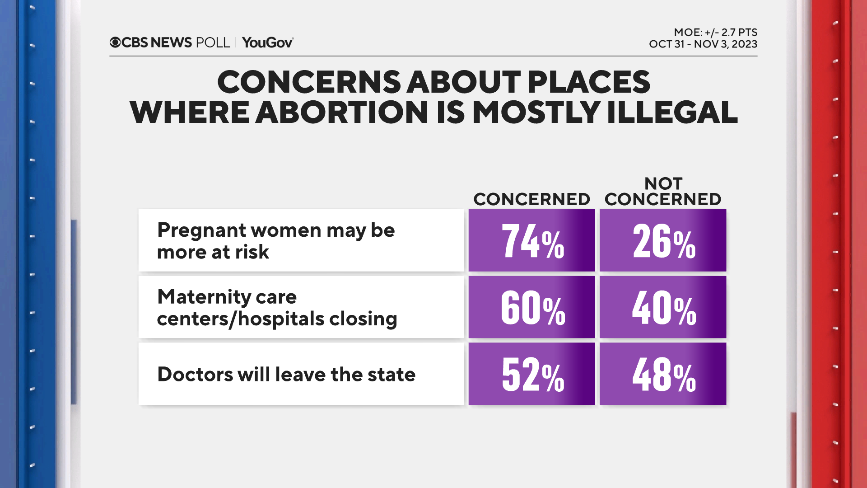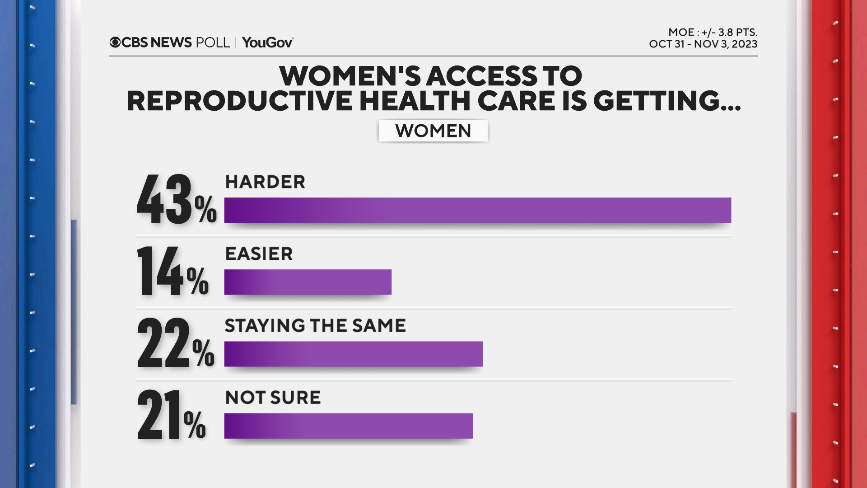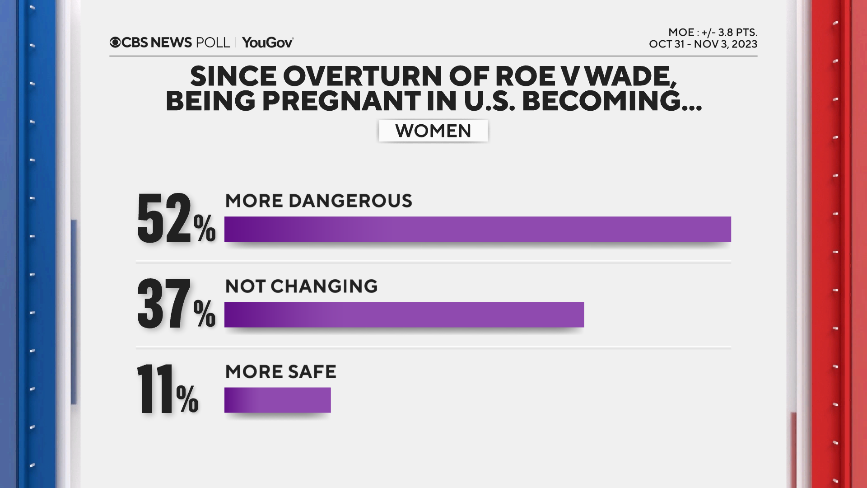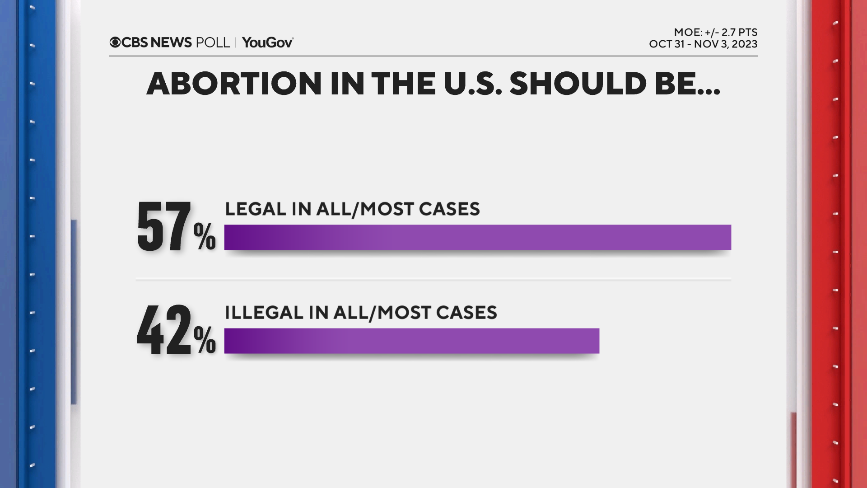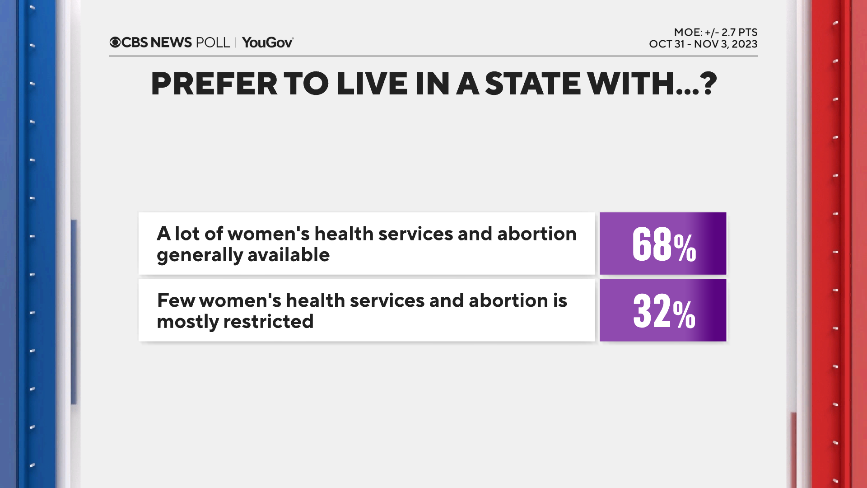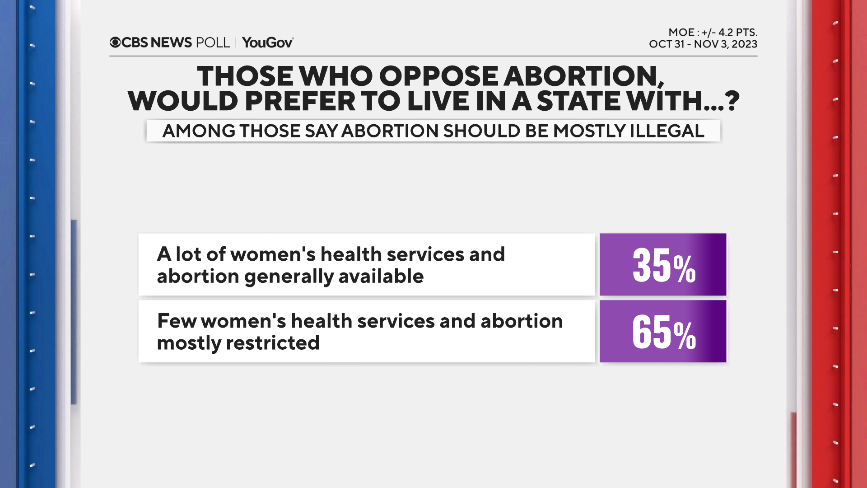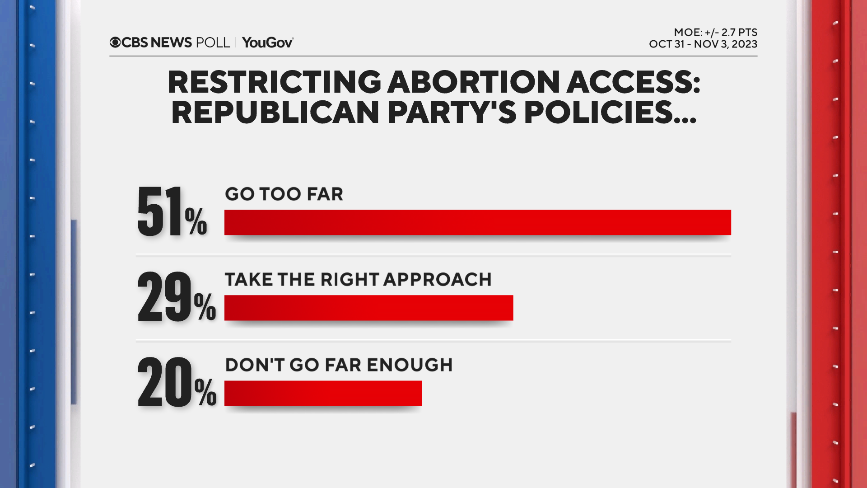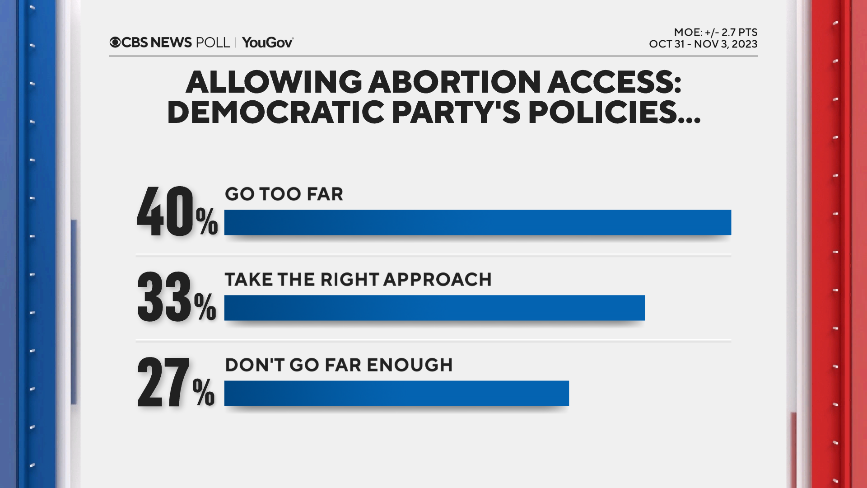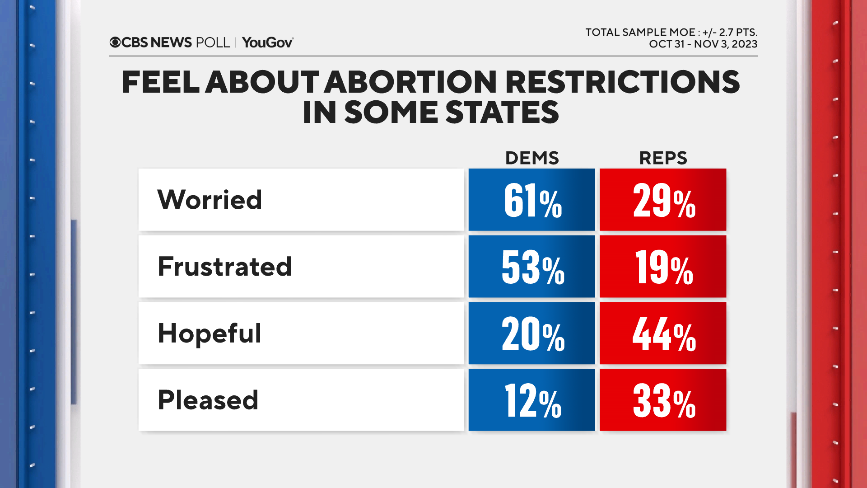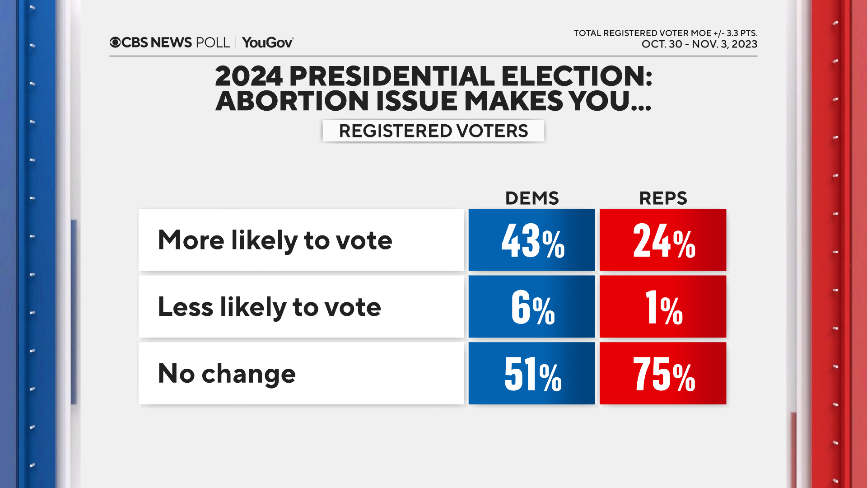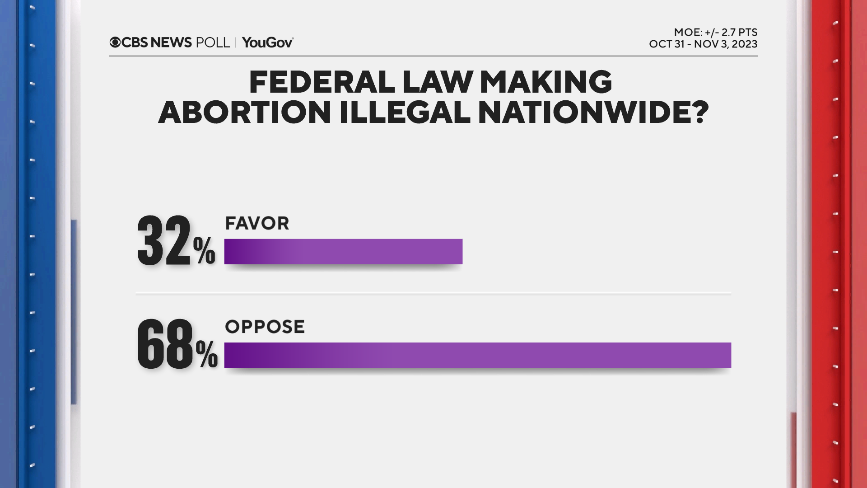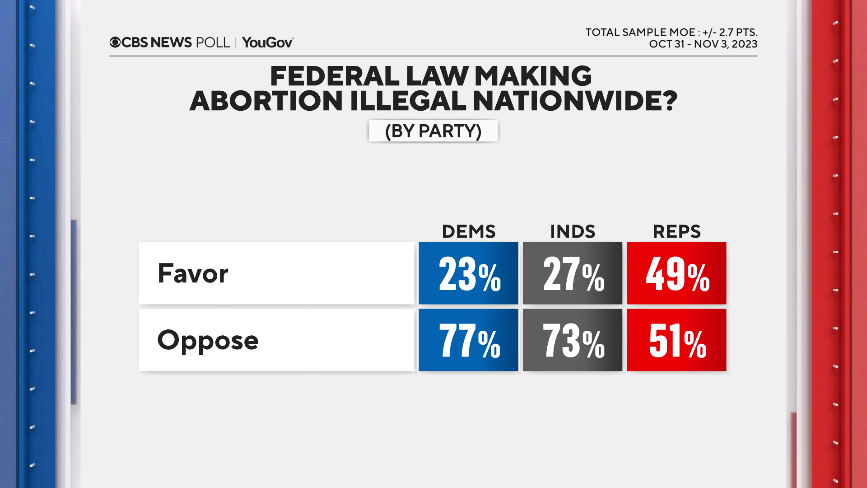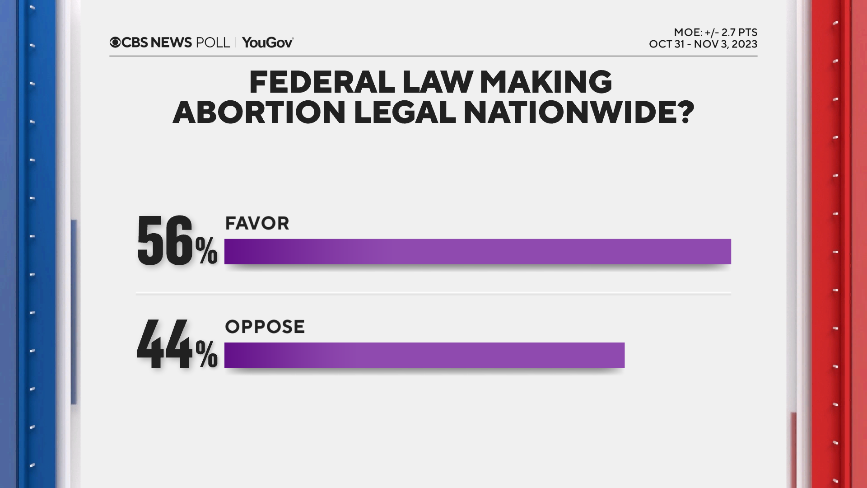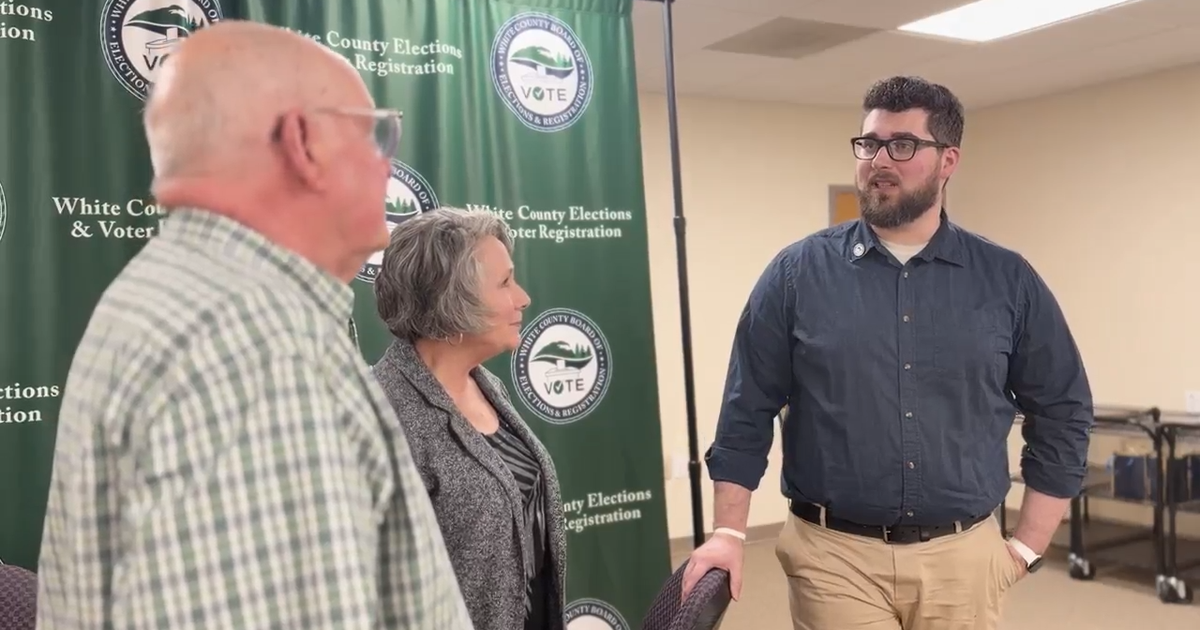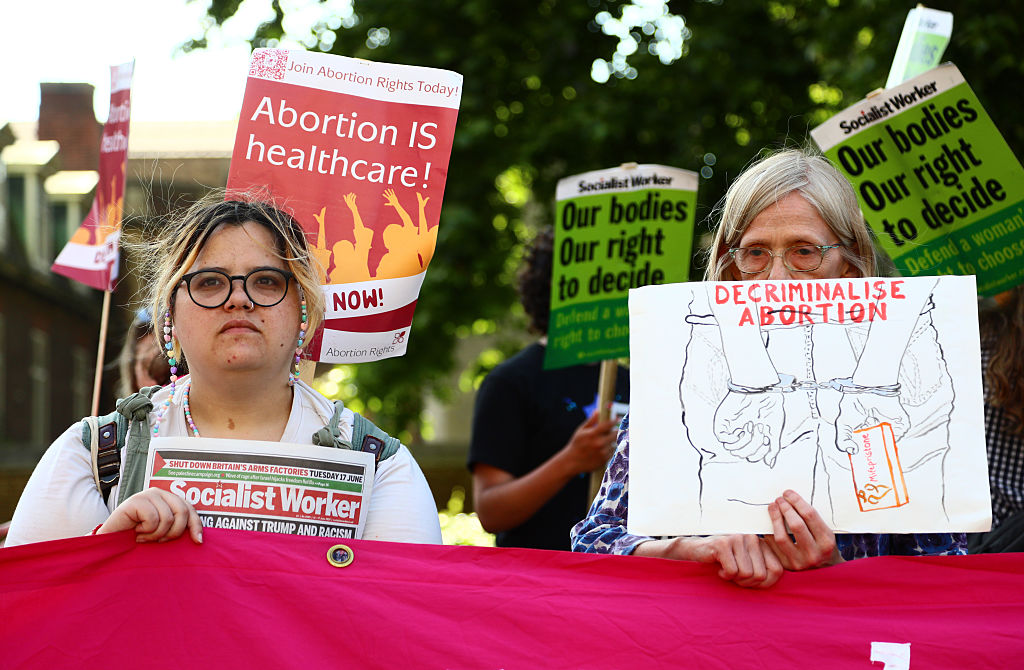As Ohio votes on abortion rights in Issue 1, CBS News poll finds widespread concerns among Americans about reproductive care access
As Ohioans cast their votes Tuesday on Issue 1, a ballot measure on abortion access, there is widespread public concern, particularly among women, about the potential impact of new abortion restrictions imposed in some states.
A majority nationwide are concerned about pregnant women being more at risk and maternity care centers closing in states that have passed new restrictions. Many are worried that doctors will leave states that have more restrictive laws.
Overall, more women think access to reproductive care is getting harder, not easier, in the wake of the overturning of Roe v. Wade — and more than half of women say that being pregnant in the U.S. today is becoming more dangerous from a health-care perspective. Few think it is becoming safer.
But given the choice, abortion opponents would take this tradeoff: living in a state with fewer women's health doctors or maternity centers, if that meant also more restrictions on abortion, too.
And it's not just those living outside these states looking in who have concerns. Majorities of people living in states that have passed some of the most restrictive measures on abortion access — primarily "red" states — are concerned about pregnant women being put at risk and the potential closing of maternity hospitals. About half have concerns about doctors leaving.
Views on these matters are strongly related to opinions on abortion overall, with those who favor abortion being mostly legal (a majority of the country) expressing concern about reproductive access and risks to pregnant women in higher numbers. Those who want abortion to be mostly illegal aren't as concerned.
Most Americans who think abortion should be illegal in all or most cases would make this hypothetical trade-off: they'd prefer to live in a state with few maternity hospitals and women's health doctors, if that also meant restricted or no access to abortion.
Those most opposed to abortion — people who think it should be illegal in all cases — are the most likely to say they would make this trade-off. Most women who oppose abortion say they would make this trade-off, but they are less likely than men to say they would.
For the broader public though, if the choice was presented, most would choose to live in a state with a lot of women's health doctors and maternity care facilities and generally available abortion access. And this preference extends to a majority of those currently living in states where abortion is the most restrictive.
The parties and the politics of abortion
The abortion issue helped keep Democrats competitive in the 2022 midterms and it could potentially be an advantage for them in 2024. Amid mostly Republican-led states enacting stricter abortion measures, more Americans feel the Republican Party's policies go too far in restricting abortion access than feel the Democratic Party's policies go too far in allowing it.
Most opposing partisans think the other side is going too far.
Democrats are frustrated and worried about the abortion restrictions enacted in some states, and this may be a motivator for them in the 2024 election, similar to what we saw with the overturning of Roe v. Wade last year.
A CBS News poll released this past weekend found Democrats nearly twice as likely as Republicans to say the issue of abortion makes them more likely to vote in 2024. Most Republicans say they are not worried about the more restrictive abortion laws states are putting in place, so the issue may be less of a motivating factor for them.
What might be considered "going too far" for most people would be a national ban on abortion. It is favored by just a third of Americans. And this is not something rank-and-file Republicans are clamoring for either: they are split on whether there should be a federal ban. It is evangelicals and the more conservative wing of the party who support such a ban, groups that have long opposed abortion rights.
Most Americans support Congress passing a federal law making abortion legal nationwide, similar to the percentage who support abortion being legal generally.
This CBS News/YouGov survey was conducted with a nationally representative sample of 2,185 U.S. adult residents interviewed between Oct. 31-Nov. 3, 2023. The sample was weighted according to gender, age, race, and education based on the U.S. Census American Community Survey and Current Population Survey, as well as past vote. The margin of error is ±2.7 points.
